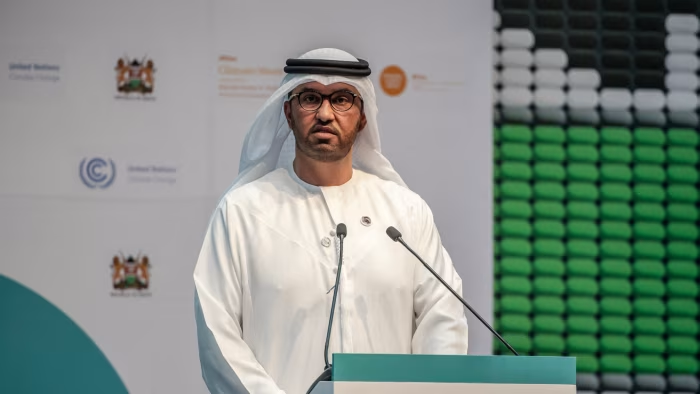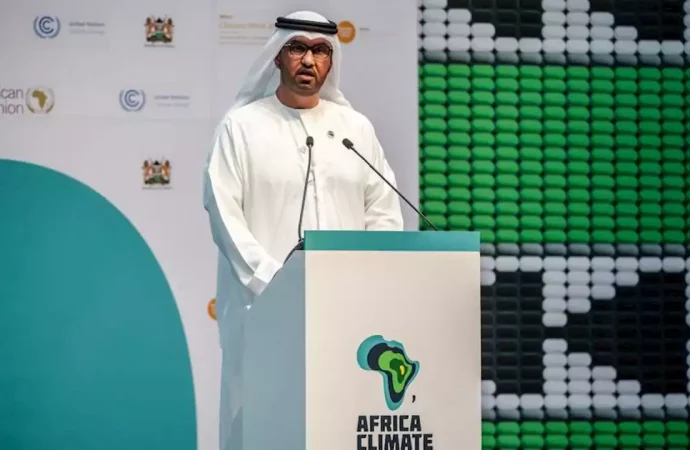Introduction: With the UN Climate Summit on the horizon, the future of fossil fuels has become a contentious issue, leaving nations at odds. While some countries advocate for a rapid transition away from fossil fuels to combat climate change, others remain reliant on these resources for their energy needs and economic stability. This article delves
Introduction:
With the UN Climate Summit on the horizon, the future of fossil fuels has become a contentious issue, leaving nations at odds. While some countries advocate for a rapid transition away from fossil fuels to combat climate change, others remain reliant on these resources for their energy needs and economic stability. This article delves into the conflicting perspectives, the challenges faced by nations, and the potential implications for global climate action.
Diverging Perspectives:
Nations’ perspectives on the future of fossil fuels vary significantly. Some countries, particularly those heavily impacted by climate change, are pushing for an accelerated phase-out of fossil fuels to reduce greenhouse gas emissions and mitigate the effects of global warming. They argue for a transition to renewable energy sources and the implementation of sustainable practices. On the other hand, countries with significant fossil fuel reserves and industries express concerns about the economic consequences of such a transition, emphasizing the need for a balanced approach that considers their energy security and economic stability.
Challenges Faced by Countries:
The challenges faced by countries in addressing the future of fossil fuels are multifaceted. For nations heavily reliant on fossil fuel industries, transitioning to alternative energy sources requires significant investments in infrastructure, technology, and workforce retraining. This transition may also have socio-economic implications, including potential job losses and the need for a just transition for affected communities. Additionally, countries with fossil fuel reserves face the challenge of managing the decline of these industries while diversifying their economies.
Implications for Global Climate Action:
The differing perspectives on the future of fossil fuels have implications for global climate action. The UN Climate Summit serves as a platform for countries to come together and commit to ambitious climate targets. However, the divide over fossil fuels can hinder progress and consensus-building. It is crucial for nations to find common ground and collaborate on solutions that balance environmental concerns with socio-economic realities. This may involve supporting developing countries in their transition efforts, promoting clean technologies, and fostering international cooperation on climate finance.

Image by: https://www. ft.com
The Role of Renewable Energy:
Renewable energy sources play a pivotal role in shaping the future of fossil fuels. The increasing affordability and efficiency of renewable technologies have made them viable alternatives to fossil fuels. Encouraging the deployment of renewable energy infrastructure, incentivizing clean energy investments, and fostering innovation in energy storage and grid integration are crucial steps towards a sustainable energy future.
Conclusion:
The future of fossil fuels has become a contentious issue, leaving nations at odds ahead of the UN Climate Summit. Balancing the urgent need to combat climate change with the socio-economic challenges faced by countries heavily reliant on fossil fuels is a complex task. Finding common ground, promoting renewable energy, and fostering international cooperation are essential for advancing global climate action and achieving a sustainable and low-carbon future. The UN Climate Summit provides an opportunity for nations to come together, bridge their differences, and collectively address the challenges posed by the future of fossil fuels.
Visual Table:
| Key Points | Implications |
|---|---|
| Fossil Fuel Debate Preceding UN Climate Summit | Significance of Global Discussions and Disagreements |
| Shift Towards Cleaner Energy Sources | Impact of Renewable Energy Momentum on Fossil Fuel Reliance |
| Economic Considerations vs. Climate Goals | Diverging Priorities of Nations in Policy Making |
| Transition Challenges and Practical Hurdles | Addressing Practical and Logistical Aspects of Transitioning |
| Governmental Approaches to Address Dependency | Policy Frameworks to Navigate Away from Fossil Fuels |
| Geopolitical Influence of Fossil Fuel Policies | Impact on International Relations and Alliances |
| Expectations for COP26 Discussions | Potential Outcomes and Agreements Related to Fossil Fuels at the UN Climate Summit |
Organic Keyword Usage:
- UN climate summit, future of fossil fuels, global discord, renewable energy, economic interests, transition challenges, COP26 discussions, geopolitical implications.

















Leave a Comment
Your email address will not be published. Required fields are marked with *